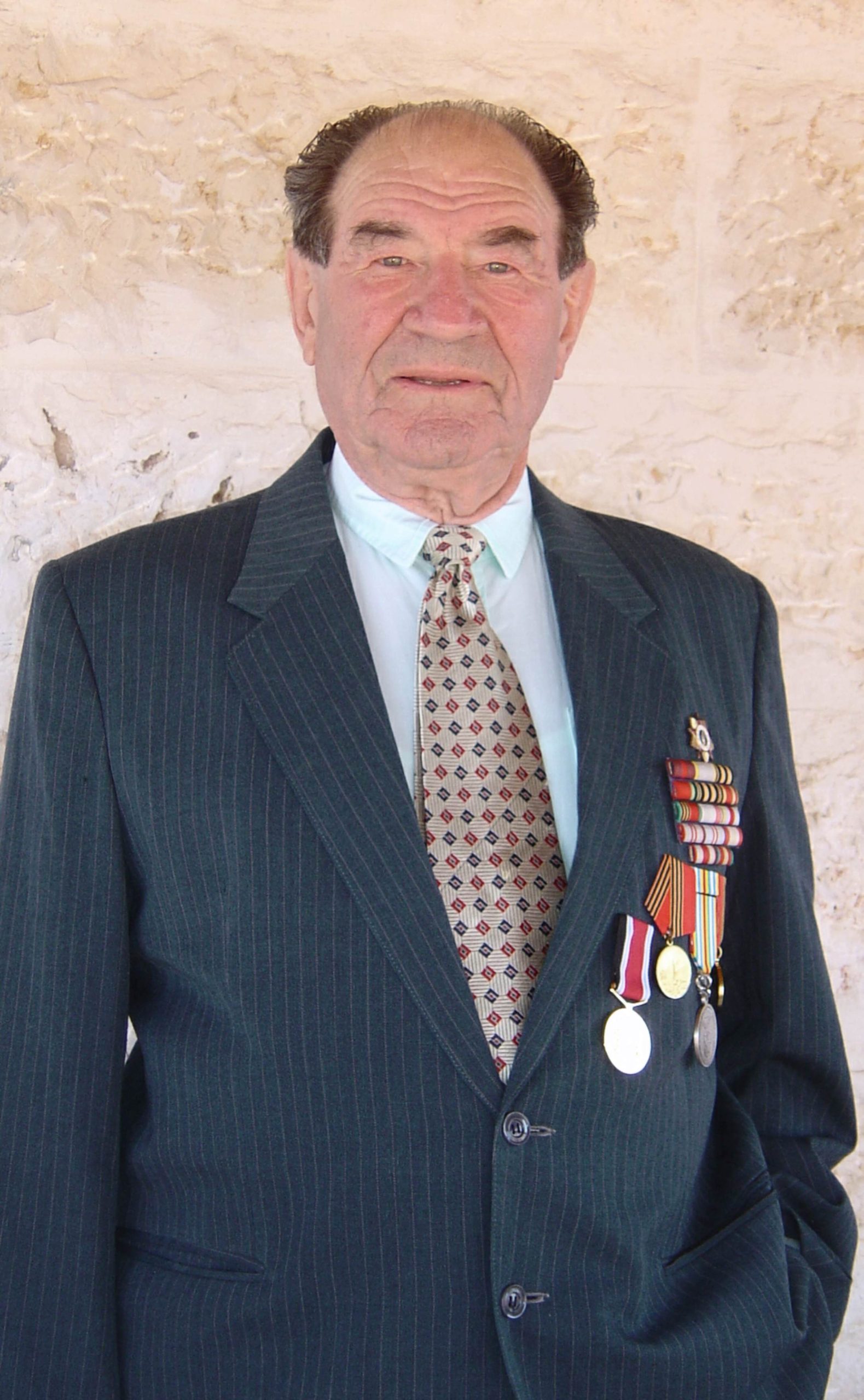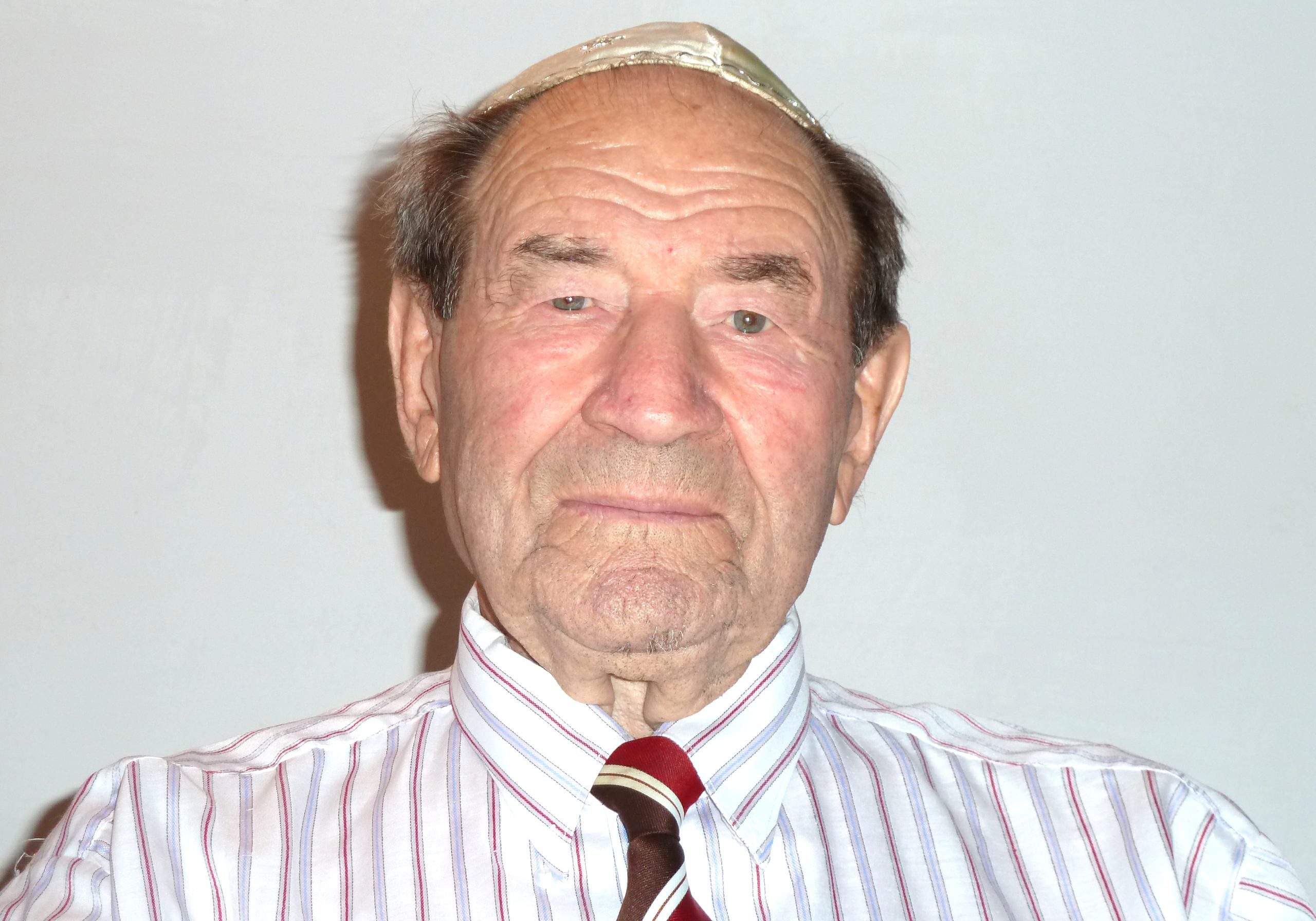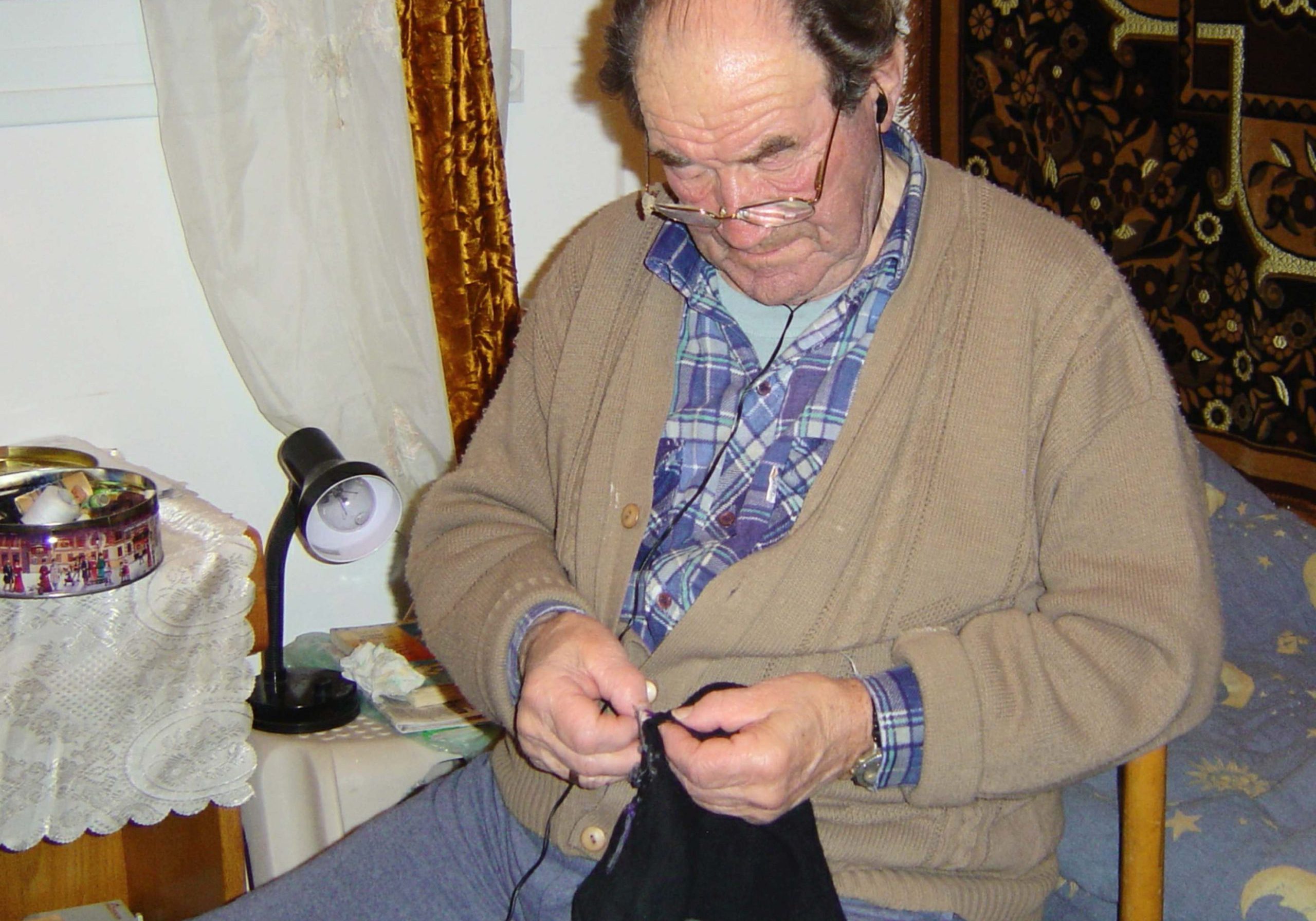ARKADI
Arkadi had three brothers and a sister. His father’s job was to bring water to the villagers from either of the two wells situated at opposite ends of the village. On the social scale of the shtetl, this put his family near the bottom, and they would therefore have been very poor.
Despite the poverty and Communism tightening its grip on society, Arkadi was able to attend a Jewish school for four years.
By this time Stalin was enforcing collective farming, thus precipitating the severe Soviet famine of 1932-1933. Millions were dying not only in the Ukraine but also throughout the Soviet Union.
The famine was to touch Arkadi’s family severely, as one of his brothers died of hunger. In a desperate attempt to feed the family, his father took them to Vinnitsa to stay with his wife’s brother.
Arkadi continued his schooling and was due to graduate on 22 June 1941. The graduation party never took place because at 6 am that morning, Nazi Germany invaded Russia.
German troops advanced and captured Vinnitsa. On 22 September 1941, during the Feast of Rosh Hashanah, the Jewish New Year, they systematically massacred 28,000 Jews they had rounded up from the area.
MILITARY SERVICE
Arkadi’s family had managed to escape, but within months he was conscripted to serve in the Soviet Army.
He was posted to Stalingrad, where he took part in the notorious Battle for Stalingrad. This began in August 1942, only a few months after he was called up. Fierce battles raged in the city and within a matter of months hundreds of thousands of Russians and Nazis died with many others wounded.
Wounded… Arkadi sustained wounds to his left leg and was fortunate enough to be evacuated away from the battle to a hospital for treatment. After convalescence spent working on a collective farm, he was whisked off to the front near Moscow.
He took part in Stalin’s massive offensive against the Germans in 1944, when the Soviets launched their military might and more than six million men to liberate occupied land.
Wounded again… Arkadi was again wounded by shrapnel – this time in his right leg.
BACK into battle... After treatment, yet again he was sent back to the army, but not as an ordinary soldier this time. He was stationed about 50 miles from Berlin. Surely God’s hand of protection must have been on him to survive all this!
Lamentably, he lost another brother, who was killed in action.
POST WAR AND MARRIAGE
When Arkadi was demobbed after the war he returned to Vinnitsa. He married in 1947, and moved with his wife to live with her parents over 2,000 miles away in Almaty, the capital of Kazakhstan at that time.
With his wife and two daughters, Arkadi spent some unenviable years living near Baikanur, the place where Russia has its space programme. This was a dangerous place to live due to severe environmental pollution.
RETIREMENT
Compulsory retirement in 1983 at the age of 60 prompted Arkadi to take his family back to Almaty.
As the doors opened for Jews to emigrate from the Soviet Union, one daughter decided to make Aliyah (emigrate to


TO ISRAEL
When his second daughter and her family decided to move to Israel in 1995, Arkadi and his wife agreed to go with them. They made their home in Beit Shemesh.
His sister also went to Israel, but their one remaining brother moved to Germany. Arkadi was fond of his sister, and used to visit her often, staying with her for several weeks at a time to help her.
BEIT HAVERIM
When Arkadi’s wife died of a heart attack, he was no longer able to afford the apartment on his single pension. He applied for a room at Beit Haverim. After eight months with us, he moved out to live with a lady friend, and they moved to Kiryat Gat. However, that relationship ended and he successfully applied to come back to us, to be near his daughter.
Arkadi liked to say his Jewish prayers; he also liked his vodka and invited others to join him. Three of them used to sit out on the first-floor balcony late into the night, much to the annoyance of the neighbours!
The Friday evening Kabbalat Shabbat (celebration as the Sabbath begins) was the highlight of the week for him. If necessary, he would step in to say the blessing. He had a strong voice and heartily sang the old Yiddish and Russian songs.
He was eventually offered government housing, and so he moved to the only ‘hostel’ for elderly people in the city. The hostel consists of studio or one-bedroom apartments. He was still able and willing to darn his own socks!
Arkadi passed away at the age of 92 after four years there.

